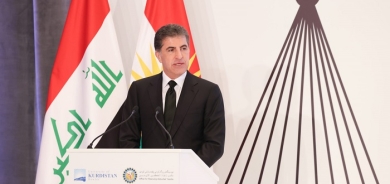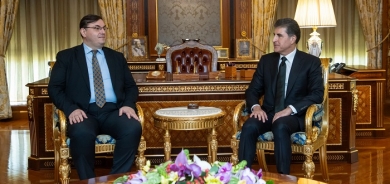Yemeni hospital hit by Saudi-led air strike: medical aid group MSF

A hospital in north Yemen run by medical aid group Medecins Sans Frontieres (MSF) was bombed in Saudi-led air strikes, wrecking the facility and lightly wounding two staff members, the group said on Tuesday.
A Saudi-led Arab coalition intervened in Yemen's civil war in March to try to restore its government after it was toppled by Iran-allied Houthi forces, but a mounting civilian death toll has alarmed human rights groups.
"Our hospital in the Heedan district of Saada governorate was hit several times. Fortunately, the first hit damaged the operations theater while it was empty and the staff were busy with people in the emergency room. They just had time to run off as another missile hit the maternity ward," MSF country director Hassan Boucenine told Reuters by telephone from Yemen.
"It could be a mistake, but the fact of the matter is it's a war crime. There's no reason to target a hospital. We provided (the coalition) with all of our GPS coordinates about two weeks ago," he said. At least two staff members were hurt by flying debris, according to Boucenine.
The air raids occurred on Monday night in north Yemen's Saada province, a region controlled by Houthi forces. The state news agency Saba, run by the Houthis, said other air strikes hit a nearby girls school and damaged several civilian homes.
It was not immediately possible to confirm that report and a coalition spokesman was not immediately available for comment.
Medical sources and a local official said 13 Houthi fighters and six fighters loyal to Yemeni President Abd-Rabbu Mansour Hadi were killed on Tuesday in fighting, including air strikes by the Saudi-led coalition, in the southwestern city of Taiz.
Reuters could not independently verify the accounts.
The London-based rights group, Amnesty International, which has recommended an arms embargo on coalition states citing repeated bombing of Yemeni civilians, said the "apparently deliberate targeting" and destruction of the hospital might also amount to a war crime.
UNICEF said the hospital in Saada was the 39th health center hit in Yemen since March. "More children in Yemen may well die from a lack of medicines and healthcare than from bullets and bombs," Executive Director Anthony Lake said in a statement.
MSF HOSPITAL BOMBED IN AFGHANISTAN
Twenty-two people including 12 MSF staff were killed when an MSF hospital was hit by an American air strike in Kunduz in northern Afghanistan on Oct. 3.
U.S. President Barack Obama apologized for that attack, but MSF continues to call for an independent humanitarian commission to investigate what it calls a war crime.
Seven months of air strikes in Yemen by Saudi Arabia and other U.S.-allied Gulf Arab countries have yet to loosen the Houthis' grip on the capital Sanaa. The southern port city of Aden is the nominal seat of Yemen's embattled government. Hadi's government had returned from exile in Saudi Arabia to start operating in Aden, but mostly went back to Riyadh after Islamic State mounted a wave of attacks on the government and allied Gulf forces three weeks ago.
The United States and Britain are supporting the coalition with intelligence and both are long-time arms suppliers to their Gulf Arab allies.
In a separate bombing on Monday, residents reported that a coalition air strike killed Haradh hospital director Yasser Wathab and two people he was traveling with in a car in the northwestern province of Hajja. They said the group were en route to treat patients killed by an earlier air strike.
And the Saudi civil defense ministry said on its Twitter account that several shells fired from Houthi-held north Yemen over the border into the Saudi city of Najran killed two foreign residents and wounded a Saudi citizen.
More than 5,600 people have died in Yemen's conflict. Shuttle diplomacy by a United Nations envoy has yet to secure a political solution or reduce the intensity of combat.
(Additional reporting by Mohammed Ghobari, Mostafa Hashem and Yara Bayoumy; Editing by Richard Balmforth)
REUTERS















